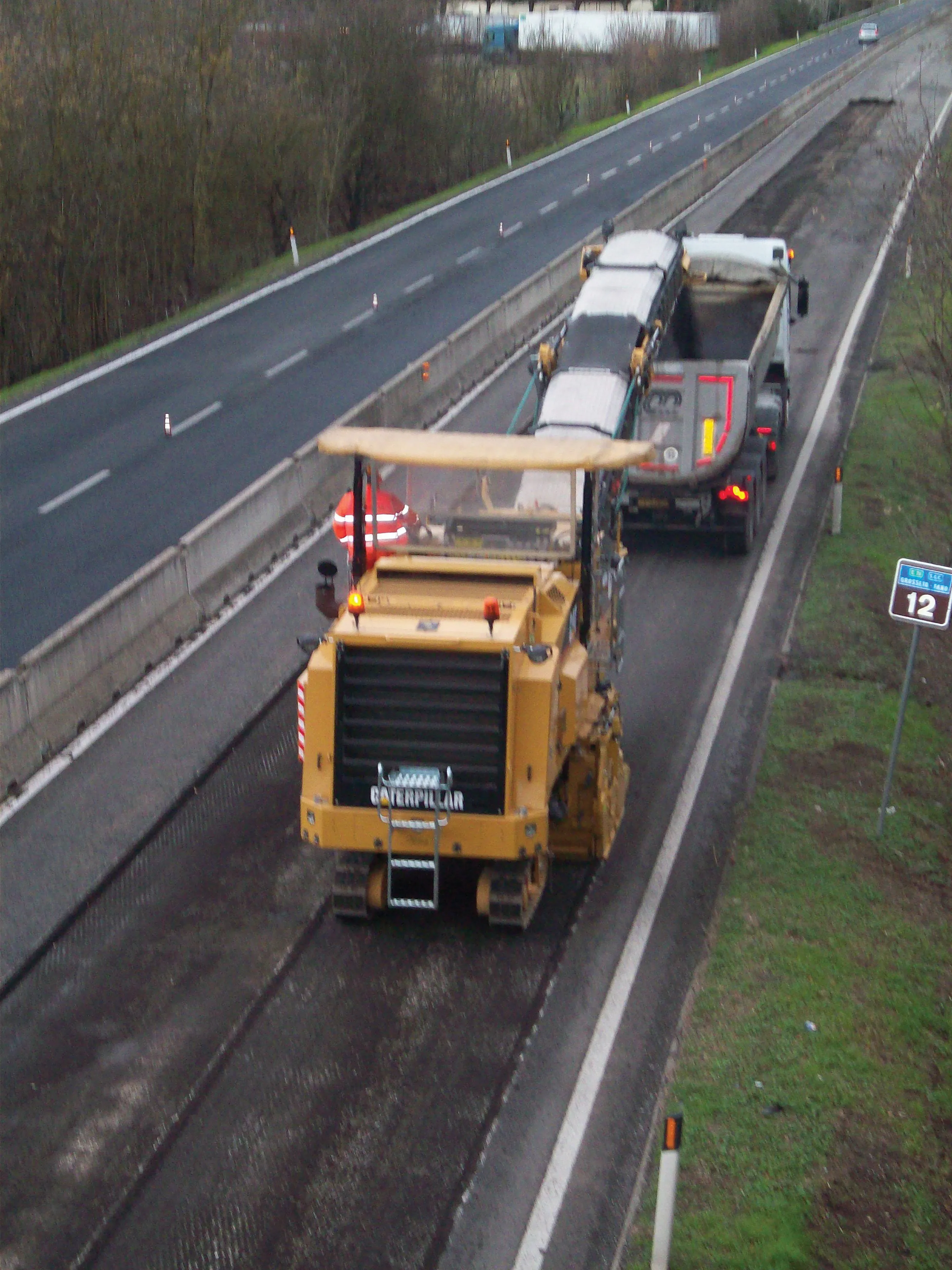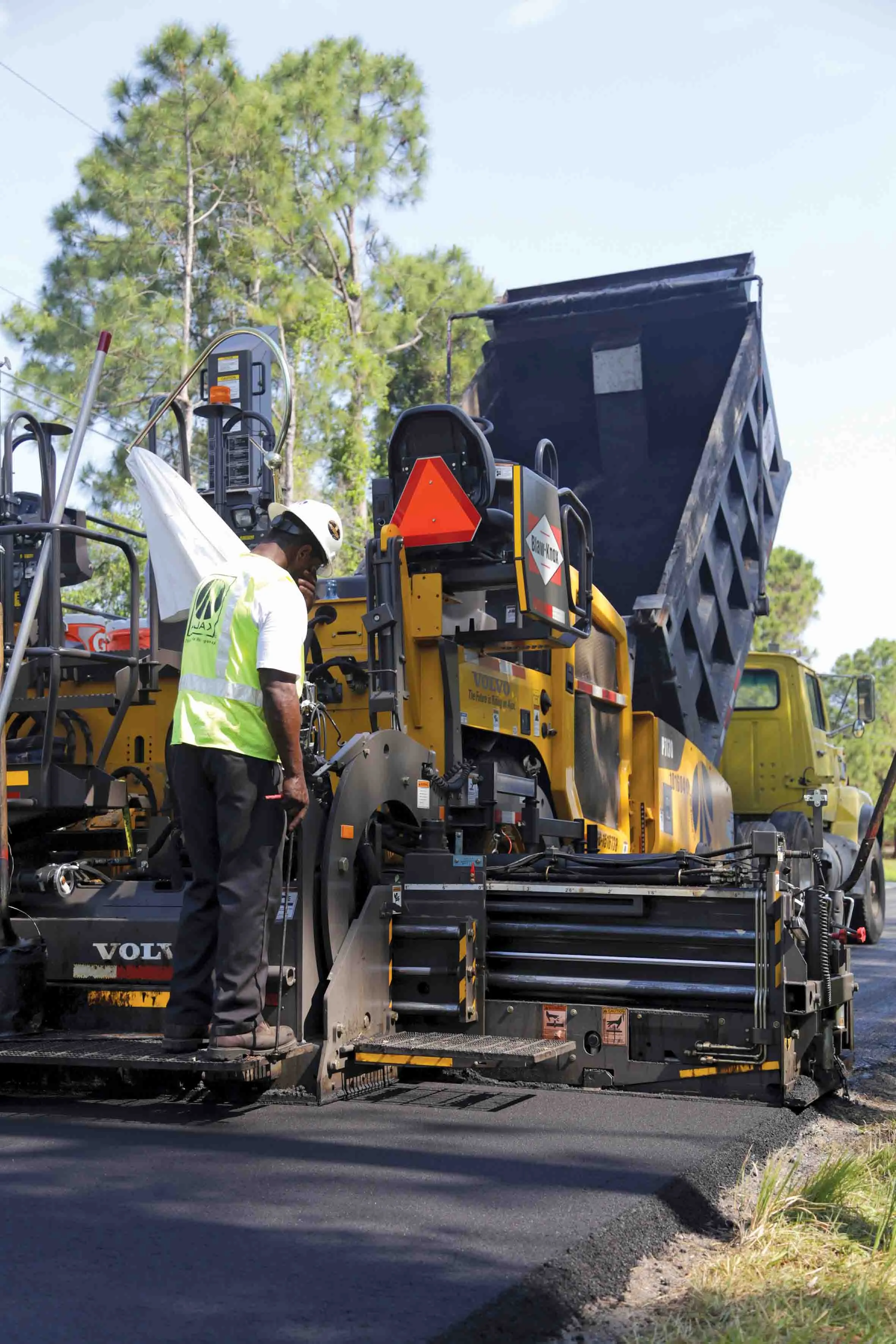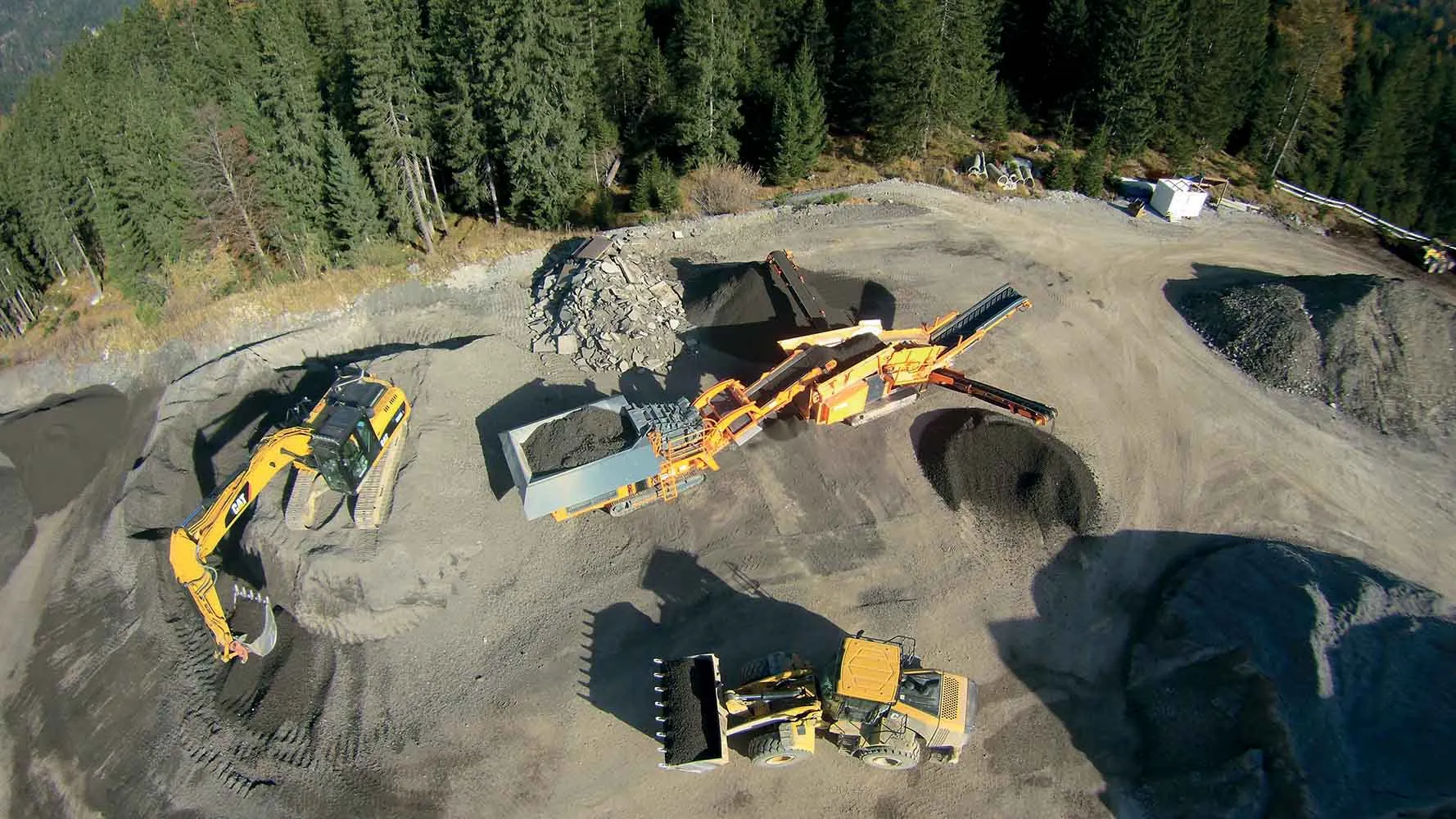Using a wider milling drum on certain applications has allowed an Italian contractor to boost productivity.
February 6, 2012
Read time: 3 mins

Using a wider milling drum on certain applications has allowed an Italian contractor to boost productivity. Arezzo-based 2295 Gellini Costruzioni recently found that using a 2.2m wide drum on its 2294 CAT PM200 cold planer instead of the standard width of 2m increased milling rate significantly. The firm said that it was able to complete a job in four passes, instead of five. This saved time and fuel as the PM200's engine has plenty of power to drive the wider drum according to the firm.
The machine has been used on the highway E78 Due Mari project, which connects the Tyrrhenian and Adriatic seas. The road also connects the key cities of Grosseto, the chief town of Tuscany's coastal area, and Fano, a coastal resort in the Marche region.
Gellini tested its new wide drum on a portion of E78 in the Tuscany province of Arezzo. The 8.35m wide road featured a driving lane and a passing lane and problems in the sub-base meant the road had to be rebuilt.
Plans called for milling, recycling and placing new asphalt over a 1.1km stretch and the PM200 cut at a depth of 230mm in the driving lane, and 50mm in the passing lane. The crews used cold recycling techniques to rebuild the sub-base, with a Cat AP600 paver then being used to lay a 50mm binder course, followed by a 50mm wearing course and a Cat CB434 compacting the mat.
Despite its wide drum, the PM200 was able to work at the same pace as with its standard drum. Breakout size was about 30mm and the milled material was conveyed into trucks. A portion of the milled material was hauled to Gellini's plant for recycling at a later date, while a greater percentage was temporarily stored on site and then used in the cold recycling process.
The rotor and Boart teeth performed well according to the contractor, which also commented on the easy operation of the PM200 that allowed the grade and slope controls to be set in position. The other PM200 components and systems performed well despite the wider drum, with the water spray devices limiting the dust and helping keep the bits cool while the conveyors handled the increased loads.
The contractor tested the drum in the field and the cold planer was taken into the shop, and the standard 2m drum was replaced with the 2.2m version. The first test was milling a 2.3km long section on the Firenze-Siena highway at a depth of 230mm. The work took a total of a week and the wider drum improved productivity and reduced fuel consumption without additional cost. Gellini Costruzioni is now milling the E45 highway at Cesena in Northern Italy, again using the wide drum to maximise output.
The machine has been used on the highway E78 Due Mari project, which connects the Tyrrhenian and Adriatic seas. The road also connects the key cities of Grosseto, the chief town of Tuscany's coastal area, and Fano, a coastal resort in the Marche region.
Gellini tested its new wide drum on a portion of E78 in the Tuscany province of Arezzo. The 8.35m wide road featured a driving lane and a passing lane and problems in the sub-base meant the road had to be rebuilt.
Plans called for milling, recycling and placing new asphalt over a 1.1km stretch and the PM200 cut at a depth of 230mm in the driving lane, and 50mm in the passing lane. The crews used cold recycling techniques to rebuild the sub-base, with a Cat AP600 paver then being used to lay a 50mm binder course, followed by a 50mm wearing course and a Cat CB434 compacting the mat.
Despite its wide drum, the PM200 was able to work at the same pace as with its standard drum. Breakout size was about 30mm and the milled material was conveyed into trucks. A portion of the milled material was hauled to Gellini's plant for recycling at a later date, while a greater percentage was temporarily stored on site and then used in the cold recycling process.
The rotor and Boart teeth performed well according to the contractor, which also commented on the easy operation of the PM200 that allowed the grade and slope controls to be set in position. The other PM200 components and systems performed well despite the wider drum, with the water spray devices limiting the dust and helping keep the bits cool while the conveyors handled the increased loads.
The contractor tested the drum in the field and the cold planer was taken into the shop, and the standard 2m drum was replaced with the 2.2m version. The first test was milling a 2.3km long section on the Firenze-Siena highway at a depth of 230mm. The work took a total of a week and the wider drum improved productivity and reduced fuel consumption without additional cost. Gellini Costruzioni is now milling the E45 highway at Cesena in Northern Italy, again using the wide drum to maximise output.









